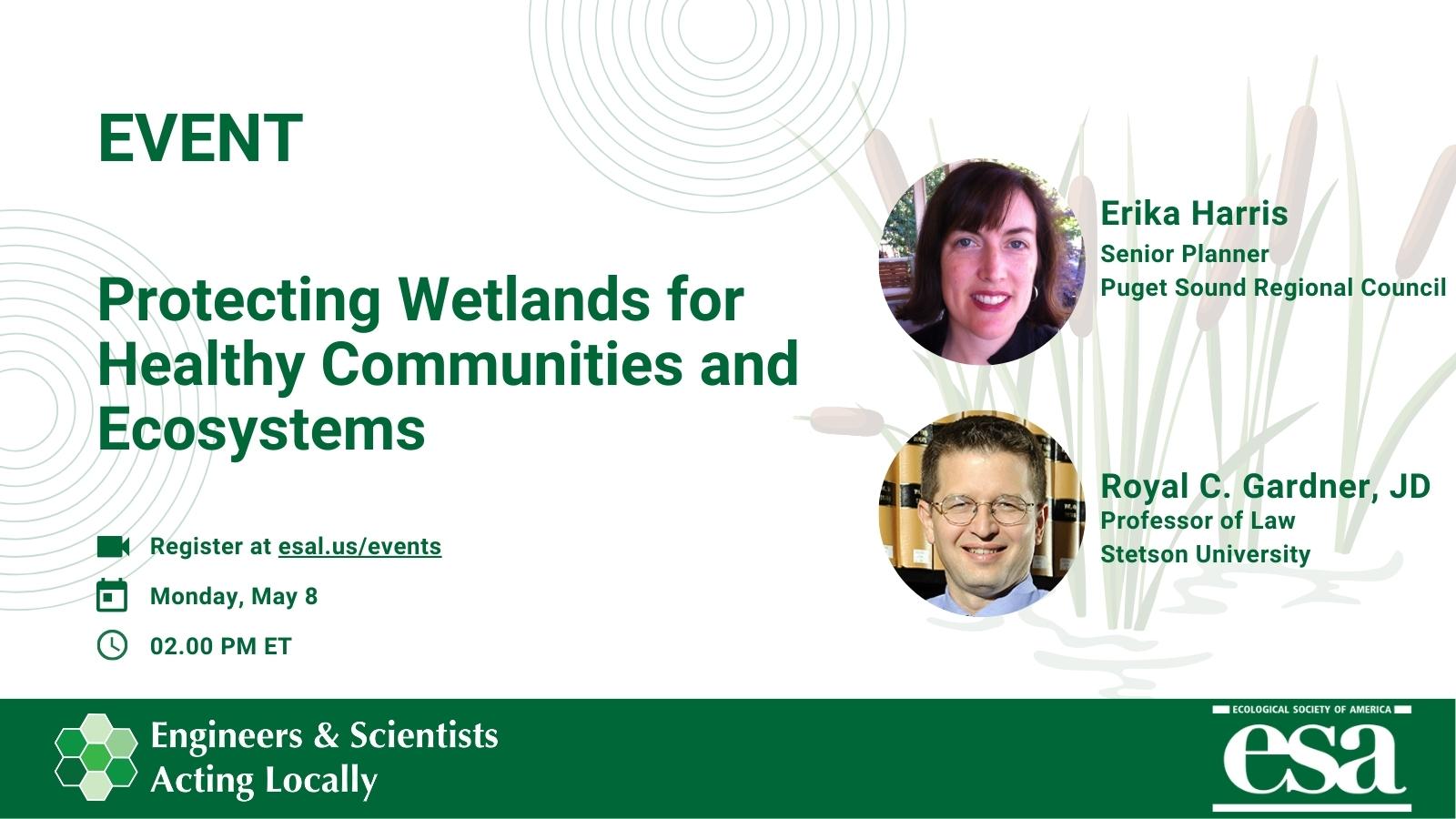
Join Engineers & Scientists Acting Locally and the Ecological Society of America to learn how science and policy intersect to protect waterways, hear from local advocates for ecologically sound practices, and discuss the potential impact of an ongoing Supreme Court Case.
Rain fills our rivers, lakes, and reservoirs, but how does it get there? Wetlands are vital to managing how water flows after storm events to protect human environments from floods and natural environments from soil erosion and habitat destruction. Sound ecological science data clearly shows the vital role of wetlands for nature and to also protect human health and property. Planning requires the expertise of ecologists, landscape architects, environmental planners, and environmental engineers, and can be incentivized by local regulations. State and local waterway protections benefit communities by improving flood control, replenishing groundwater reserves, protecting biodiverse habitats, and supporting the maintenance of thriving outdoor spaces that everyone can enjoy. The Clean Water Act is a federal law that gives authority to states to protect the nation's waters . An ongoing Supreme Court case (Sackett vs. EPA) has the potential to shape the scope of this law. In this panel, co-costed by Engineers and Scientists Acting Locally and the Ecological Society of America, we will hear from legal experts and implementers who will discuss the role of policy, both federal and local, in effective ecosystem management.